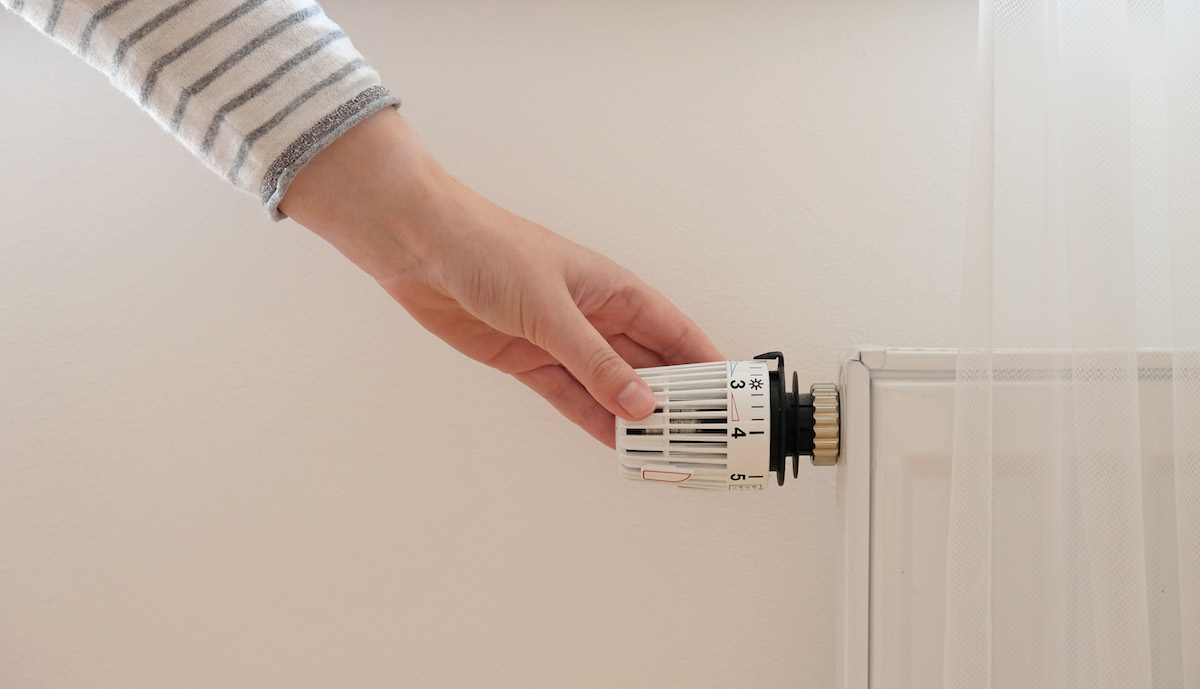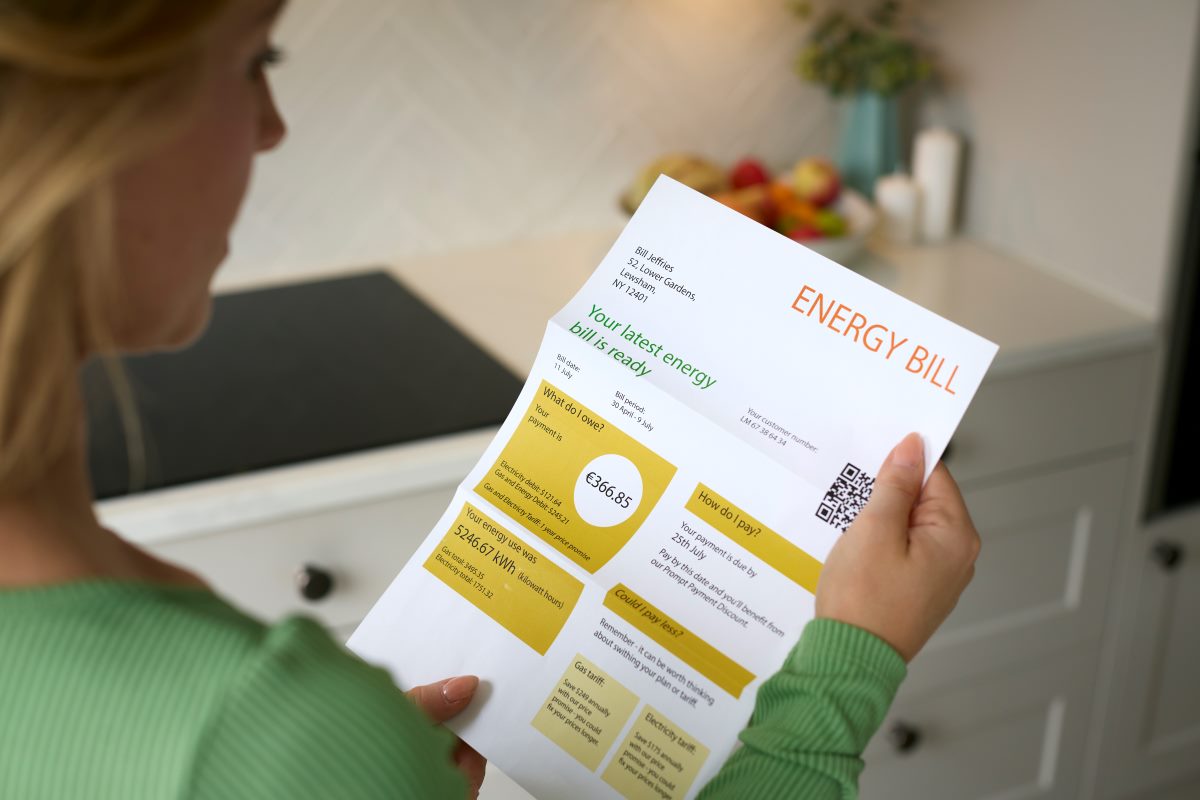Why is Energy Efficiency Important for Individuals?
There are many reasons why energy efficiency should be a priority for every individual, including environmental, personal, health, and environmental reasons.
Energy Efficiency Helps Protects the Environment
Table of contents [Show]
-
How Can Individuals Be More Energy Efficient?
-
Quick Fixes
- Close the Blinds in Summer. Keep them Open in Winter.
- Defrost Your Freezer
- Use Lids on Pots
- Use Your Microwave
- Don’t Open Your Oven Door
- Turn Off the Oven and Stove Early
- Conserve Water
- Do Laundry More Efficiently
- Maintain the Optimum Home Temperature
- Unplug Unused Electronics
- Maintain Your Fireplace
- Low-Cost Measures to Help You be More Energy Efficient
- More Significant Investments to Help You Be More Energy Efficient
-
Quick Fixes
- Conclusion: A Comprehensive Guide to Energy Efficiency for Individuals
We all want a livable planet for future generations. We can only achieve this if we halt climate change and limit warming to 1.5°C above pre-industrial levels.
The United Nations considers energy efficiency as vital in the fight against climate change. As a result, they have set a target of doubling global energy efficiency savings by 2030 as part of their Sustainable Development Goals. The International Energy Agency also considers energy efficiency as having a “central role in tackling climate change.”
For example, the widespread adoption of energy-efficient appliances in the United States could reduce carbon emissions by 550 million metric tons by 2050. In Canada,energy-efficient, transitioning to net-zero buildings could provide energy savings of 50%.
Energy Efficiency Improves Your Health and Quality of Life
More than just being good for the planet, energy efficiency also helps improve your health and quality of living. Worldwide, 4.2 million people a year die of exposure to air pollution, and many more experience poor health. Using energy more efficiently means using less, which equals less air pollution.
Living or working in an energy-efficient building also reduces any symptoms of respiratory conditions such as asthma. If you live in a cold climate, energy-efficient buildings reduce rates of winter mortality. If you’re in a hot environment, they reduce levels of dehydration and heatstroke.
Energy Efficiency Makes Your Life Easier
Highly energy-efficient homes often include technology such as light sensors and smart thermostats. Such technology makes your life easier as you don’t have to remember to turn off lights and appliances.
Energy Efficiency Saves You Money
Installing energy-efficient appliances in your home can save you a substantial amount of money. For example, installing ENERGY STAR appliances can save the average Canadian homeowner $300 a year in utility costs.
This money can then be re-invested into, for example, upgrading your insulation to make your home even more efficient and saving even more money.
Energy Efficiency Insulates You From Rising Energy Costs
Another reason that energy efficiency is essential for individuals is that electricity prices continue to rise worldwide. In Ontario, household energy prices will increase by 52% by the year 2035.
Therefore, energy conservation is an essential method of mitigating these rising costs.
Energy Efficiency Can Increase the Value of Your Property
If you own your property, investing in energy efficiency is a smart move. Houses made more energy-efficient can see their value rise by between 10 and 14%. Studies have also shown that many people would try to renegotiate a home’s price if they discovered it was energy inefficient.
In Canada, homeowners can have their homes’ energy efficiency assessed through the EnerGuide system, which provides ratings demonstrating how efficient a building is.
How Can Individuals Be More Energy Efficient?
Now that we’ve established the importance of energy efficiency, how do we as individuals become more energy efficient? Read on to find out.
Quick Fixes
Close the Blinds in Summer. Keep them Open in Winter.
In summer, sun streaming through windows will heat rooms and cause your air conditioner to work harder to maintain a cold temperature. Therefore, keeping sunlight out will reduce the burden on your air conditioner and save energy.
In contrast, opening blinds and letting sunlight enter in winter will naturally heat your home, requiring less heating.
Defrost Your Freezer
Defrost your freezer at least once a year, or when the ice build-up is more than ¼ inch thick, to ensure it is running efficiently.
Use Lids on Pots
Cooking with lids on pots and pans will heat food and water quicker, therefore using less energy.
Use Your Microwave
When possible, use a microwave instead of an oven. An oven takes one hour to do the same job that a microwave can do in 15 minutes.
Don’t Open Your Oven Door
Resist the temptation to open the door to check on food frequently. Repeated door-opening can drop the oven temperature by 25°F, slowing down the cooking process. If you must check, use the oven light and look through the glass.
Turn Off the Oven and Stove Early
Turn off your oven and stove a few minutes before the food finishes cooking. The food will continue to cook with the residual heat without using more energy.
Conserve Water
The average Canadian uses 329 litres of water a day. Therefore, reducing this amount, even slightly, is a simple way for individuals to improve their energy efficiency.
One way to do this is to take shorter showers. By lowering your daily shower time by just one minute, you could conserve enough water to save $30 annually.
Similarly, turning off the faucet when shaving, washing hands, and brushing teeth can reduce hot water usage by 5%.
Do Laundry More Efficiently
There are several ways that individuals can improve their energy efficiency while doing laundry. Firstly, since 90% of the energy used by washing machines goes into heating the water, you can save significant amounts of energy by washing with cold water. Doing so is just as effective as hot water for most loads.
Secondly, try to wash with full loads as much as possible since the machine will use the same amount of energy no matter the load size.
Finally, avoid using a dryer by drying clothes naturally inside or outside on a drying rack.
Maintain the Optimum Home Temperature
An easy way for individuals to improve their energy efficiency is to keep their homes at the correct temperature. Try to avoid turning the thermostat up too high in winter and too low in summer, as this will waste energy. The optimum home temperature is 20°C in winter, while it is 25.5°C in summer.
Unplug Unused Electronics
Electronic devices continue to draw power from the socket even when they are switched off. This phenomenon is called phantom power and can account for up to 10% of a home’s energy use. The average Canadian home has 25 electronic devices pulling phantom power at one time, which costs around $150 a year.
Therefore, unplugging appliances that are not in use is a quick and easy way to be more energy-efficient and save money.
Maintain Your Fireplace
If you have a wood-burning fireplace in your home, there are steps you can take to conserve energy and save money.
Firstly, keep the damper – the vent that controls airflow – closed when the fire is not in use. Leaving the vent open will let warm air escape through the chimney. Also, inspect your damper to ensure it closes properly. If it does not, it’s time to replace it.
Secondly, remember to sweep out the ashes from your firebox regularly. As little as one-tenth of an inch of soot can reduce the heat output of a fireplace by 50%, decreasing its efficiency.
Low-Cost Measures to Help You be More Energy Efficient
In addition to the free, quick fixes detailed above, some low-cost measures can help you be more energy-efficient and save money. They will cost some money up-front but are well worth the small investment.
Please note that two main energy conservation programs Greensaver delivers – the Energy Affordability Program and the Home Winterproofing Program – offer many of these measures for free to eligible participants.
Install a Low-Flow Showerhead
The average Canadian family could save 42,340 litres of water and 1180 kWh of power annually by installing a high-quality, low-flow showerhead. Such showerheads can cost as little as $8 from home hardware stores.
Thankfully, this saving doesn’t come at the expense of comfort. Studies have shown no reduction in comfort and cleanliness compared to conventional models.
The Save on Energy Energy Affordability Program – offers low-flow showerheads free of charge to those who qualify.
Reduce Air Leaks
Air leaks around, for example, windows and doors, force your heating and cooling system to work harder, wasting energy. Our Home Energy Solutions team can be hired to provide home insulation work and draft proofing to plug such leaks.
Additionally, Greensaver is the delivery agent for two programs that offer these services to eligible customers for free – the Energy Affordability Program and the Home Winterproofing Program.
As mentioned above, electronic devices continue to draw power from the socket even when they are switched off.
As opposed to unplugging appliances when not in use, you could also purchase a smart powerbar, which detects when a device is on standby and shuts off its power automatically.
These powerbars cost as little as $35 at your average hardware stores. Alternatively, the Energy Affordability Program offers them free of charge to eligible participants.
Insulate Your Hot Water Tank
Insulating your water heater may reduce heat loss by 25%-45%, improving energy efficiency and saving money. If your water heater is warm to the touch, it likely needs to be insulated. You can buy pre-cut jackets or blankets, which will do the trick.
The Save on Energy Energy Affordability Program – offers free hot water tank wrapping to eligible customers.
Start a Compost Pile
If you have a backyard, starting a compost pile is an excellent way for individuals to improve their energy efficiency. Your fruit and vegetable waste becomes fertilizer for your garden, saving you the money and the energy required to buy and produce it.
More Significant Investments to Help You Be More Energy Efficient
In addition to the free and low-cost energy efficiency measures already mentioned, more significant investments can help individuals improve their energy efficiency and save money. While these measures cost more up-front, they bring with them significant long-term savings.
Many of the more extensive measures are also available for free to eligible customers through conservation programs such as – the Save on Energy Energy Affordability Program and the Enbridge Gas Home Winterproofing Program.
Switch to LED Lightbulbs
LED bulbs are more efficient than incandescent bulbs. Using them throughout your home will make you more energy-efficient and save you money in the long run.
However, as mentioned in a past insight, LEDs can be expensive to purchase compared to their less efficient counterparts. Therefore, buy them gradually.
Alternatively, Greensaver delivers a program that offers LED bulbs for free to those who qualify – the Save On Energy Energy Affordability Program.
Buy a Smart Thermostat
If you can afford it, invest in a smart thermostat. These thermostats learn from your heating and cooling patterns to adjust the temperature automatically. You can also access them from your cellphone if you accidentally leave the air conditioner on full blast when you leave your home. They are so effective at reducing energy waste that they can reduce heating costs by 10-12% and cooling costs by up to 15%.
Greensaver delivers the Enbridge Gas Home Winterproofing Program on behalf of Enbridge Gas. This program offers free smart thermostats to eligible participants.
Insulate Your Walls and Attic
Insulating your walls and attic can help you save up to 11% on heating and cooling costs. Additionally, it will prevent mould damage, increase home comfort, and add value to your home.
Greensaver delivers the Enbridge Gas Home Winterproofing Program on behalf of Enbridge Gas. This program offers free insulation upgrades to eligible participants.
Additionally, we have an expert crew of insulation specialists in-house who are available for hire. You can request a free quote today.
Install a Storm Door
Storm doors are an extra outside door designed to give an extra layer of protection from the weather. They limit heat loss in winter and keep cold air inside in summer, making your home more energy-efficient.
Have an Energy Evaluation Done
Having a professional energy evaluation done is an excellent way to be more energy-efficient and save money. Above all, an evaluation will show you where you are inefficient and suggest improvements.
Greensaver’s Home Energy Solutions team can complete a tailor-made energy evaluation for you.
Buy ENERGY STAR Products
When replacing home appliances, make sure to purchase ENERGY STAR, which signifies the most energy-efficient models.
By Switching to ENERGY STAR appliances, a typical household can reduce energy consumption enough to save around $750 a year on their energy bills.
Get an HVAC Tuneup
Sometimes, your Heating, Ventilation, and Air Conditioning (HVAC) System will run inefficiently due to loose connections, clogged filters or dirty coils. Have your system checked by a licensed technician annually to ensure optimum performance.
When purchasing HVAC equipment, consult EnerGuide labels, which give a product’s energy performance rating based on Canada’s Energy Efficiency Regulations standards.
Replace Your Windows
In the average home, 25-30% of the energy produced is lost through windows. Therefore, if you can afford it, replacing old, inefficient windows is an effective way for individuals to improve their energy efficiency and save money.
Consider Daylighting
If you plan a home renovation, consider the amount of natural light that will enter the building. Ensuring adequate natural light enters – known as daylighting – can help you save as much as one-third of total energy costs by reducing lighting use.
Additionally, as discussed in a previous insight, adequate natural light has numerous health benefits, including better sleep and less seasonal depression.
Invest in a Tankless Water Heater
Tankless water heaters heat water only when required, therefore avoiding the standby heat loss found in conventional hot water tank heaters. Tankless water heaters are 24-34% more efficient than traditional hot water tanks for homes that use 41 gallons or less of hot water a day.
Plant Trees
If you have a garden, you can design it to help you save energy. By planting trees in strategic locations, you can create shade and reduce air conditioning costs. This practice is known as shade landscaping and is very efficient. The cooling effect of a young, healthy tree over its lifespan is equal to 10 room-sized air conditioners working for 20 hours a day.
Conclusion: A Comprehensive Guide to Energy Efficiency for Individuals
In conclusion, there are many ways in which you, as an individual, can become more energy efficient. Doing so will help improve your health, help combat climate change, and enhance your quality of life.



